Dean Devlin and actress Sumalee Montano talk about their sci-fi thriller 'The Deal'
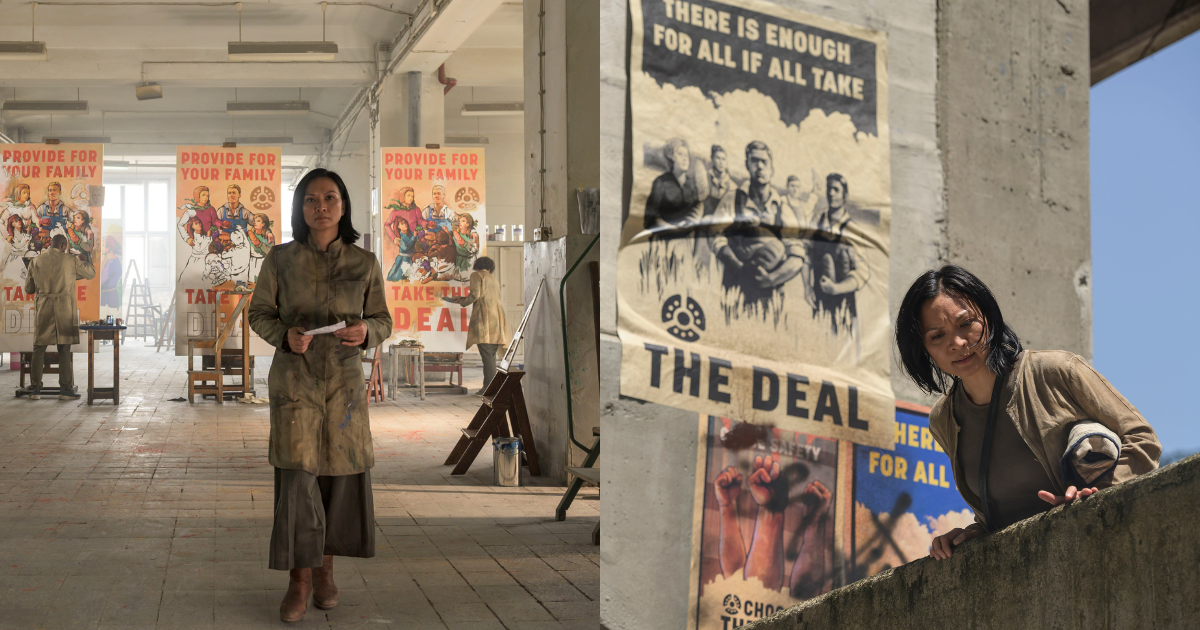
LOS ANGELES — "It is like a dream come true!" actress Sumalee Montano told us in an exclusive interview when asked about having no less than Dean Devlin as one of the producers of her new sci-fi thriller, "The Deal."
The movie, helmed by Hungarian female filmmaker Orsi Nagypal ("In Treatment," "The Outpost"), is set in a bleak dystopian world where resources are so scarce one must pay for them with their life. It also tells of a mother-daughter relationship based on the real-life relationship of Montano with her Filipina mother, Maria Linda Montano from Quezon City.
Montano, who not only co-wrote and co-produced the film, also stars in the film as the mother Tala Bayani. "The Deal" presents a world where overpopulation and global warming have put an impossible strain on world resources. To combat the global crisis, the totalitarian governing body known as The Bureau establishes The Deal. You accept The Deal by your 20th birthday, and you'll receive a job, housing, and medical care that will keep you safe and healthy for 20 more years, after which point, you are required to voluntarily take your own life. Tala Bayani took The Deal.
Montano, who is Filipina-Thai-American, said of working with Devlin ("Independence Day," "Stargate," and "Godzilla") and his wife Lisa Brenner (who is also a member of the cast) as co-producers, "Oh my gosh, it was a dream come true. They were my first-choice partners to work with, and I was so happy when they signed on. To have the two of them together as well."
"Lisa really connected with what the story says about women in society, and obviously, Dean brings such a wealth of experience and he's such a veteran, has so much world building experience in the sci-fi genre. The two of them together combined with the heartfelt story that I wanted to talk about my mom, I feel like it was a dream come true. You feel so secure when someone like Dean is helming and steering the ship. So, I got to benefit so much and learn from him."
Other members of the cast included Emma Fischer ("Counterpart") as Analyn Bayani, Alastair Mackenzie ("The Crown"), Taz Skylar ("The Kill Team"), Pearl Mackie ("Doctor Who") and Brenner ("The Patriot," "Say My Name").
The film, which is co-written by Montano with Sean Presant, is presented by Devlin's Electric Entertainment, in association with LinLay Productions, most well-known for the production of the full-length feature film "Nanny," which won the 2022 Sundance US Grand Jury Prize.
We interviewed Devlin and Montano by Zoom. Below are excerpts from our interviews.
Dean Devlin (Producer)
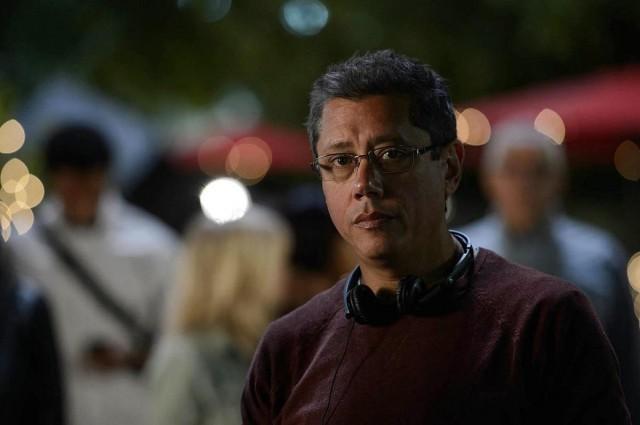
Congratulations on the sci-fi film thriller, "The Deal." What made you produce this film and what was it about the story that really interested you?
The story actually came from the lead actor of the movie, Sumalee. She came to my office because she's friends with my wife and she had pitched it to my wife, and they came to my office and pitched me the story. I thought, I've never ever seen a mother-daughter sci-fi post-apocalyptic story before. I thought it was such an interesting way to have an intimate personal story in a larger science fiction film. So, I got very excited about making it together with her.
How was it collaborating with Sumalee and your wife, Lisa Brenner?
My wife and I, this was the second film she and I produced together. We've gotten used to working together, and Sumalee just was wonderful. The initial idea of the movie came to her when her mother passed away and she was thinking about all the sacrifices that her mother had made, as a Filipino woman, to make sure her daughter had a successful life. The story came from there. It was a deeply personal story. Even though it's a fictional sci-fi movie, it was very personal to Sumalee. So, it was just this wonderful experience of getting to explore this thing that she needed to express as an artist. And to watch her channel her own mother in the film was really thrilling.
It's really interesting that this is also a multicultural film, including a lot of ethnicities and cultures, Filipinos, Americans, and everything. So, did you plan to have this like this, or it just happened by accident?
I've always tried to do that. Whether you look back on "Independence Day," which was the first time that a Black guy and a Jewish guy saved the world, I always try to have more representation, but especially with Filipinos, it's interesting that we're in a time where diversity is a very important thing in filmmaking, and yet Filipinos are still wildly underrepresented. Again, this idea that I could do this kind of science fiction film with an adult woman who was Filipino made it all the more special.
This is also powered by a lot of women, directed by a woman, created by a woman, produced by women and all this women power in the film. How exciting is that for you?
I felt it was important. It's a mother-daughter story and I am neither a mother nor a daughter, so I really trusted these very talented people. I've worked with our director, Orsi Nagypál before on our television show and she's just a terrific director. I've watched my wife develop as a producer, as a writer and a director herself. To see these very talented women, again, delve into a story that was personal for all of them, you get an insight that I could never bring. It was just really wonderful to watch the unique perspective of these women tackling this kind of subject.
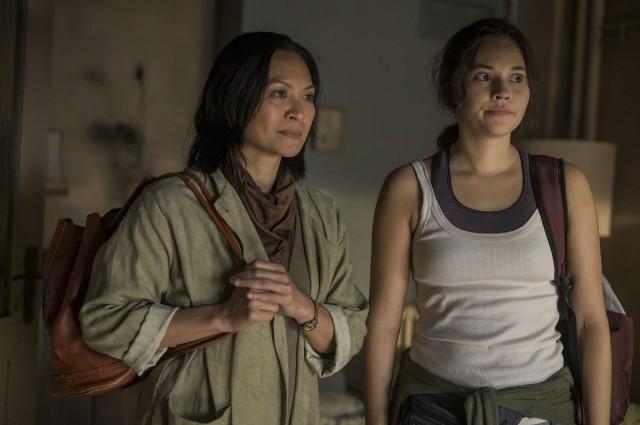
Can you talk about the casting of Emma Fischer as Analyn Bayani?
With Emma, it was a very tough casting because we were looking in the UK, the United States, Canada, and Serbia, because in the story, she's Sumalee's daughter, but she's also the daughter of a British man. We needed someone who had that mixed Asian flavor, but we also needed someone who could handle how difficult the role is. When Emma came in and auditioned, we were all just blown away from the first audition. She really understood the psychological depth of this character and yet also was able to inject a lot of humor into the part.
How was it filming in Serbia? Were you there?
I was there for a part of it. We've been in Serbia now for a few years. We did a TV series there called "The Outpost," and we just most recently did a series there called "The Arc." So, we're very familiar with the talent there and the crews there. But mostly, frankly, it was to be able to make this film without having to reduce the scope of it. Because when I first saw the script that Sumalee brought to me, I thought, well this is a wonderful personal story in a script that's going to cost $20 million dollars to make. That's a very difficult thing financially to pull together and to make profitable.
But when I brought the script to Serbia, suddenly we were able to do it within our budget and not have to reduce the size and the scope of what we wanted to show on screen. I feel like we got an enormous amount of value, and when you see the film, it looks like a much bigger budget than what we were able to afford.
What were the challenges you encountered while producing this film?
It does have a large scale, so there's a lot of effects that needed to be done. There were a lot of actors that we have to get from different parts to represent whether they were Russian, Serbian, British or from the United States. Casting was unique. Bringing in Pearl (Mackie), who had been in "Dr. Who," we felt that was a really great get for us to get her in.
But again, we have to work within everyone's schedules and their times. It was a lot of coordinating to try and make a film that for the audience felt like a much bigger budget film and yet be able to do it within the time restraints and the financial restraints we had.
You mentioned you were in the Philippines recently. Can you talk about this and taping for the second season of "Almost Paradise" in Cebu?
I've just come back from three and a half months in Cebu, and we're in the middle of shooting the second season and it's just spectacular. In fact, we have a GMA star in our show this year, Max Collins. We've got a terrific cast. All the favorites have returned from season one and then there's some new additions, and now this time we're doing it for Amazon Prime Video. We're going to get a lot more support than we got the first time. A lot more publicity.
The show has sold all over the world, and it's really a remarkable thing because I get a lot of DMs and emails and Twitter responses from Filipinos everywhere. A lot of them are people who are just so grateful to get to see their home country in a scripted show. But I'll tell you, the interesting thing is I get a lot from Filipinos who are second generation, who have not even spent time in the Philippines, and they say things to me like, "Oh, I had no idea there were such beautiful resorts." And I was like, "Are you kidding me?" They are the most beautiful resorts in the world.
They didn't even know that because so much of the representation of the Philippines has just been poverty porn. So, to be able to show other parts of the culture and how beautiful it is, and to see the response from Filipinos around the world and non-Filipinos, it's been so exciting. It's a very rewarding show to get to make.
So, did you do any R&R aside from just the work or no chance in Cebu?
I've heard about this thing called rest and one day, I want to find out about it because it sounds like a great thing.
Sumalee Montano (Writer, Producer, Actress)
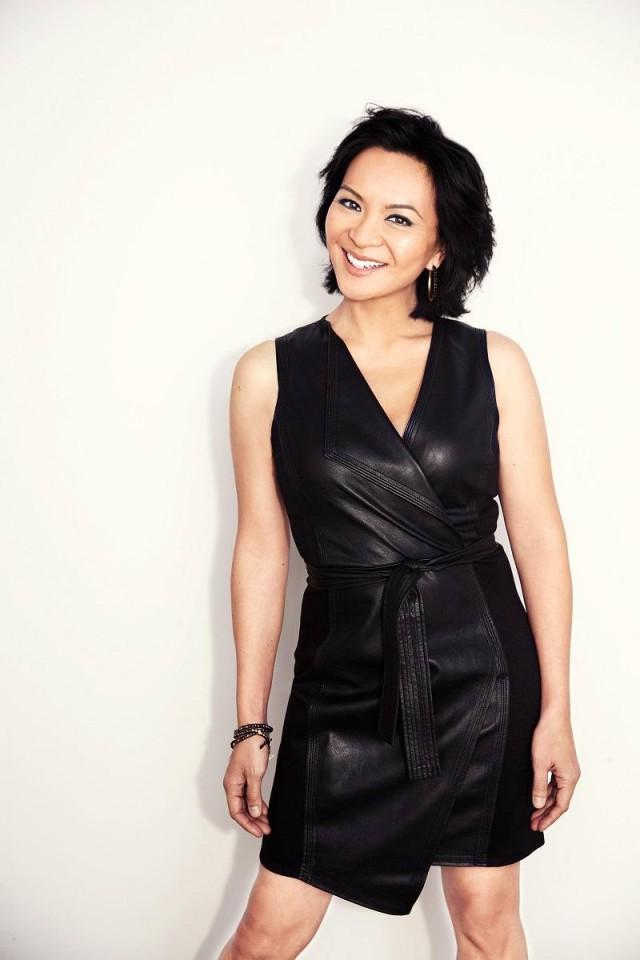
Congratulations on this very exciting sci-fi thriller, "The Deal." You mentioned that this story was based on your real-life relationship with your mother. Can you please elaborate more on that?
Absolutely. I would love to. This movie was my love song to my mama, Linda Montano. Everything about our relationship, how we loved each other, how we fought, how I got mad at her. Everything, Janet, you see it on the screen. I'm still beside myself when I watch it. I think of moments that we lived in our real life that ended up on screen. For example, one of the first scenes in the film, you see Tala or the mother and her daughter Analyn fighting, and Analyn getting mad at her mom because she's dying. She has to die in five days. She yells at her mom and then storms out and goes to party with her friends.
That's literally taken from my time with my mom when I was in high school. She was diagnosed with breast cancer, and she was a single mom, and I just emotionally couldn't deal with the thought that my sole support system, what might happen to her. So, on the day that she was supposed to go in for her mastectomy, I just refused to go. I disappeared in the same way that you see Analyn on screen, and so many other instances and moments like that, that we got to play out.
Can you talk about the heritage of your mother? Is she Filipina or Thai?
My mom is Filipina. My lola and lolo are from Ilocos Norte. My mom grew up in Quezon City. So, she's Filipina, proud Pinay. She passed away nine years ago, but to me, she lives on through this film.
How was it having all these women doing this movie? Directed by a woman, created by a woman, acted by women, there's really women power in this film. Is it about time that women really took over the reins of Hollywood production?
I would love it if women took over the reins in all kinds of arenas, but yes, it was really special. Like you said, to have the movie come from a special place about a very complex relationship between a mother and daughter. Then to have a woman champion in Lisa Brenner, and to have a woman director, Orsi, was so crucial because she actually grew up behind the Iron Curtain. So, she brought such lived experience to what it's like to live in this post-apocalyptic or near apocalyptic dystopian world.
Then to have all of us actually supported by Dean was just wonderful, because he is so experienced and so knowledgeable, that he can make suggestions that we all benefit from, but he can also listen. I felt that because he did, we ended up with the story that we did, and we all got to participate, and have a real seat at the table, guided by his leadership.
This is also a multicultural production with you and Grace Lay working on it, and Dean. Talk about how important it is to have representation in Hollywood.
Absolutely, it is everything to me. American dystopian films in general are notorious for their lack of diversity, and I wanted to disrupt that. I had to disrupt it; I felt a need to. We didn't want to just have that one Asian character or the one person of color character at the beginning that dies to signal that.
This is really an important thing that's going on. We really wanted to center women of color in there. It's important for us to see ourselves on screen, but we created these characters too, to be every woman that any parent can relate to. Any parent can feel the love and the desperation that Tala feels to save her child.
You graduated from Harvard. Then you left your investment banking career. What made you do that? At what point in your life did you decide, I want to be an actress?
That is a great question that probably some of my family is still wondering, why did she leave? No, I just got to a point... I'm very grateful that my parents could help me go to Harvard, and I went into investment banking thinking, okay, this is how I want to learn. I want to learn how the world works. I want to learn how the money flows because that's so important. I felt like I got a great education and foundation in business and finance, but it wasn't my passion. And I, after working 80 to 100-hour weeks, week after week, after week, and you're not engaged in something you're super passionate about, it finally just hit me, what am I doing?
Life is too short. I decided that I wanted to pursue a career in the arts, which was in me. I don't know if you know this, my lola was an actress in the Philippines, Jesusa Montano Saddam. My great uncle is Severino Montano, who is a national artist of the Philippines. So, I feel like it's in my blood, it just took a while for it to come out. I had to go make a ton of money in business first, and then say, all right, I've done that. I've proven that I could do that, now I want to pursue the arts.
Did your great uncle, Severino Montano, ever tell you what to do? Or he allowed you to be an actress or gave you some tips on how to survive in the industry?
No, he didn't; he passed away before I decided to do this. But the funny thing is because my mom grew up in a household where she watched her mom rehearsing for plays, because my lola would act in Severino Montano's plays. If anything, my mom was trying to dissuade me from becoming an actor, because she's like, oh, I heard my mom rehearsing lines over and over and over. It took her mom away from the family because she would be at rehearsals, and then late at night performing. If anything, my mom was trying to steer me away from it, but what's in the heart and what's in the blood, you can't really deny that after a while. And so, I just had to pursue it.
How was it growing up in two diverse cultures?
Oh, it's a trip. It's a trip because I had the Thai culture from my father, the Filipino culture for my mom. Then, of course, just growing up in America. I did spend the first four or five years of my life in Thailand. So Thai was actually my first language. But then my parents split up, my mom and I came back to the States, and she just drilled me with English. So, I think I'm a little closer to my Philippine heritage because she was a single mom. But it's a trip.
I'm so happy that you're interviewing me because there's a part of me that's like, sometimes I feel like I'm never Filipino enough to be considered Filipino, and then I'm never Thai enough to be Thai. The Thai people say, oh, you look like you're Filipino. The Filipino people say, oh, you look like you're Thai. Then meanwhile the American people are like, where are you from? Sometimes it can be a trip. But obviously, I feel like I've gotten to a place in life where I'm so grateful for the mixed heritage that I have.
Have you ever been to the Philippines?
I have, several times. Probably the longest that I've been there. After I graduated from college, I got a Fulbright scholarship to the Philippines, and I studied there for a year. I was affiliated with UP Diliman, at the Women's Studies Department actually. I studied the effects of overseas contract workers on families that are left behind in the Philippines. I was there for almost a year and had the time of my life. It was the best.
I had my barkadas. I had my mountaineer barkadas. I had my academic barkadas. It was amazing. Then after, I went into investment banking. I spent two years in New York, but then I eventually went back to the Philippines, which was my coverage area for Morgan Stanley. I was based in Hong Kong, but I covered the Philippines, so I would go back and forth quite a bit. But yeah, I love the Philippines. I love my friends from there.
So, you obviously speak Tagalog too.
Konti lang. When I was there, I was so proud of myself because I would do research in the squatters' areas, and I would take multiple rides. I'd take a jeepney. I'd take the tricycle to the communities that I was working in. I got so good at one point, that no one could cheat me on the change that I would get back. I was so happy that I could say it just like a local. But obviously that's gone now.
Talk about the development of your character, your name's Tala Bayani, and your daughter's name is Analyn Bayani. Was that your idea or suggestion to the writer? And talk about your collaboration also with Sean Presant for the writing.
Yeah, Sean was an important pick for me because he actually knew my mom. So, Sean and I were friends from college, so he had met my mom a few times. That ultimately, was one of the main reasons I wanted to work with him. He actually came up with the names Tala and Analyn. I remember we brainstormed a lot and I know that for the daughter character, you know how in Philippines, the names, sometimes there's like two. There's my mom, Maria Linda, and I'm blanking on examples now. But Analyn seemed just perfect.
He came up with Tala, and I've since learned there's actually other characters named Tala in many other things. But at the time, I thought it was super unique, and I'm so glad that we got to work together on this with Sean. He was great.
Are you still pinching yourself that you just made a movie? Because I know in some of your interviews, you said, "I can't believe I made a film."
Absolutely. You hear about people saying how hard it is to get a movie made, but it is, it really is. Now it's out there, and I'm just so grateful that we made it to the finish line. We actually finished filming this before the pandemic hit, so that was one thing.
We got our re-shoots done in December of 2019, and then the world changed. I'm so glad that we were able to finish and get it out there.
But just seeing the dedication to my mom at the end of this, was everything for me. I got to get closer to her through the process in a way that I couldn't have anticipated by playing the character that was based on her. I feel like my mom continues to give to me even after she's passed. This is one of those things for sure. She used to say, "What's mine is yours," all the time when she was alive.
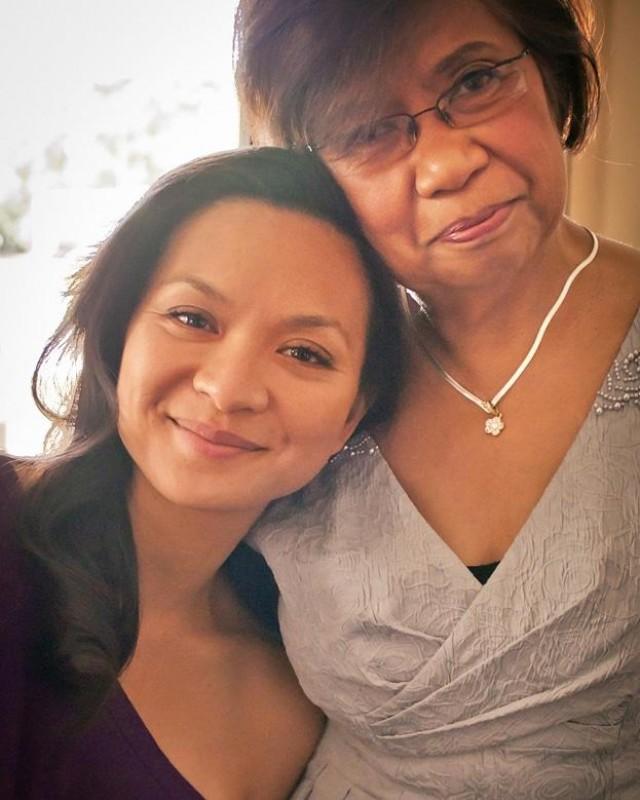
And to me, this is me sharing the love that she gave me with everyone.
What was the best lesson your mom gave to you?
Wow, that's a great question, Janet. I feel like there are so many. Okay, the first one that I can think of is, you can't know where you're going if you don't know where you've come from. That really has inspired me throughout my life to learn more about my Filipino heritage, and to get closer with that culture. That's one.
She wanted to make sure that I had a kid because she said it would be so fun, and she was right. I mean, really, it's how hard she worked and how much she sacrificed for me, that I didn't even realize when she was alive. I only realized how much she sacrificed when it was already too late. But it's one of the lessons she gave to me in terms of how deeply she loved me. I hope that I'm honoring that, not just through the movie, but obviously through my real life and how I take care of my son.
That's very touching. So, in your process of making this film, what did you learn as a producer, and as an actress about filmmaking?
So many things. Like you said before, I learned that I could actually make a movie, I didn't know that I could do that. I think that as an actress, it certainly gave me a lot more confidence. This was my first co-lead role. To be able to go through that process of filming, I was on set filming every day except for one. That in and of itself is a huge learning experience. Becoming more confident with who I am as an actress was big. Just knowing that I could make a film was big.
Thankfully we had such a great experience working with Dean, Lisa, and Electric Entertainment and everyone. The crew in Serbia was amazing. But because of that, we've gone on to make more movies, and we've got a couple out in theaters now. We've got a bunch more in the pipeline. That's something I'm really proud of that came out of this too, continued producing.
If you were to talk to your younger self, what would you have told her?
I would probably have told her, don't worry so much. Everything's going to work out as you dream it, it will. Especially starting off in this business, I had so few opportunities to do something like this.
It certainly took a while, 20 plus years of pounding the pavement and being active on camera and voiceover, video games, all kinds of places to be able to put together a living. Then to have it culminate in actually being able to tell your own story is amazing. It's truly a transcendent feeling. I wish I could have gone back and told myself, it's okay, you can be calm. Just keep working hard, but it'll come.
—MGP, GMA News




